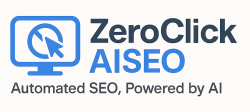The Search Revolution is Already Underway
For over two decades, Google has been synonymous with internet search. But as we close out 2025 and enter 2026, a seismic shift is occurring that will fundamentally alter the search landscape forever. AI-native search engines are not just competing with Google—they are surpassing it in ways that matter most to users.
The Cracks in Google’s Foundation
Google’s dominance was built on a simple promise: help users find the best information quickly. But somewhere along the way, that mission became compromised by advertising revenue, SEO manipulation, and an increasingly cluttered user experience.
Today’s Google search results page is often a minefield of ads, sponsored content, and SEO-gamed articles that prioritize keywords over genuine value. Users are frustrated, and they’re voting with their clicks by migrating to AI-powered alternatives.
What Makes AI Search Different
AI search engines like ChatGPT Search, Perplexity, and Claude are fundamentally different from traditional search engines. They don’t just return links—they understand questions, synthesize information from multiple sources, and deliver direct, accurate answers in conversational format.
The key advantages are undeniable:
1. Instant, Accurate Answers: Instead of scrolling through ten blue links and clicking through multiple websites, users get comprehensive answers immediately. No ads, no clickbait, no wasted time.
2. Contextual Understanding: AI search engines remember your conversation history and understand context. Ask a follow-up question, and it knows exactly what you’re referring to without requiring you to rephrase your entire query.
3. Source Transparency: Unlike traditional search results where you must trust the ranking algorithm, AI search engines cite their sources directly, allowing users to verify information and dig deeper when needed.
4. No Ad Pollution: The current generation of AI search tools is not yet corrupted by advertising revenue models. The user experience is clean, fast, and focused entirely on delivering value.
The Numbers Don’t Lie
In early 2024, ChatGPT was processing approximately 100 million searches per week. By the end of 2025, that number has grown to over 500 million weekly searches—a 5x increase in less than two years. Meanwhile, Google’s search market share has declined for the first time in its history.
Among users aged 18-34, the demographic that drives technological adoption, over 40% now use AI search engines as their primary search tool. This percentage is growing month over month, and the trend is accelerating, not slowing.
Why Google Can’t Simply Adapt
Some argue that Google will simply integrate AI into its search and maintain dominance. But this perspective misses a critical point: Google’s entire business model is built on advertising revenue from clicks. AI search that delivers direct answers eliminates clicks—and therefore eliminates Google’s revenue stream.
Google faces an impossible dilemma. If it fully embraces AI search, it cannibalizes its own business model. If it doesn’t, it loses users to competitors who will. This is classic disruption theory in action, and history shows that companies in this position rarely survive the transition.
The Enterprise Shift
It’s not just individual users making the switch. Enterprises are rapidly adopting AI search for internal knowledge management, customer support, and research operations. The productivity gains are simply too significant to ignore.
When companies equip their employees with AI search tools that deliver instant, accurate answers without the noise of traditional search, there’s no going back. This enterprise adoption is creating a generation of workers who expect AI-powered search as standard—and they’re bringing those expectations to their personal search habits.
The 2026 Tipping Point
We predict that 2026 will be remembered as the year AI search reached mainstream dominance. The convergence of improved AI capabilities, growing user frustration with traditional search, and widespread adoption across demographics will create an unstoppable momentum shift.
Google will remain relevant, but it will no longer be the default choice for information discovery. The verb “google it” will sound as dated as “ask Jeeves” does today. The future will be “ask AI” or simply “search”—platform agnostic and AI-native.
What This Means for Businesses
For businesses, this shift requires urgent strategic adaptation. SEO as we’ve known it—optimizing for Google’s algorithm—is becoming less relevant by the day. The new imperative is “AI Search Optimization”: ensuring your content is accurately represented when AI engines synthesize information.
This means focusing on:
- Authoritative, factually accurate content that AI can trust and cite
- Structured data that AI systems can easily parse and understand
- Direct, clear answers to user questions rather than keyword-stuffed articles
- Building brand authority that makes your content a primary source
The Inevitable Future
The transition from Google-dominated search to AI-native search is not a possibility—it is an inevitability. The user experience is simply superior, the technology is rapidly improving, and the momentum is unstoppable.
Businesses and marketers who recognize this shift now and adapt their strategies accordingly will thrive in the new paradigm. Those who cling to outdated SEO tactics designed for a Google-dominated world will find themselves increasingly irrelevant.
The search revolution is here. The question is not whether AI search will overtake Google, but how quickly—and whether you’ll be ready when it does.

